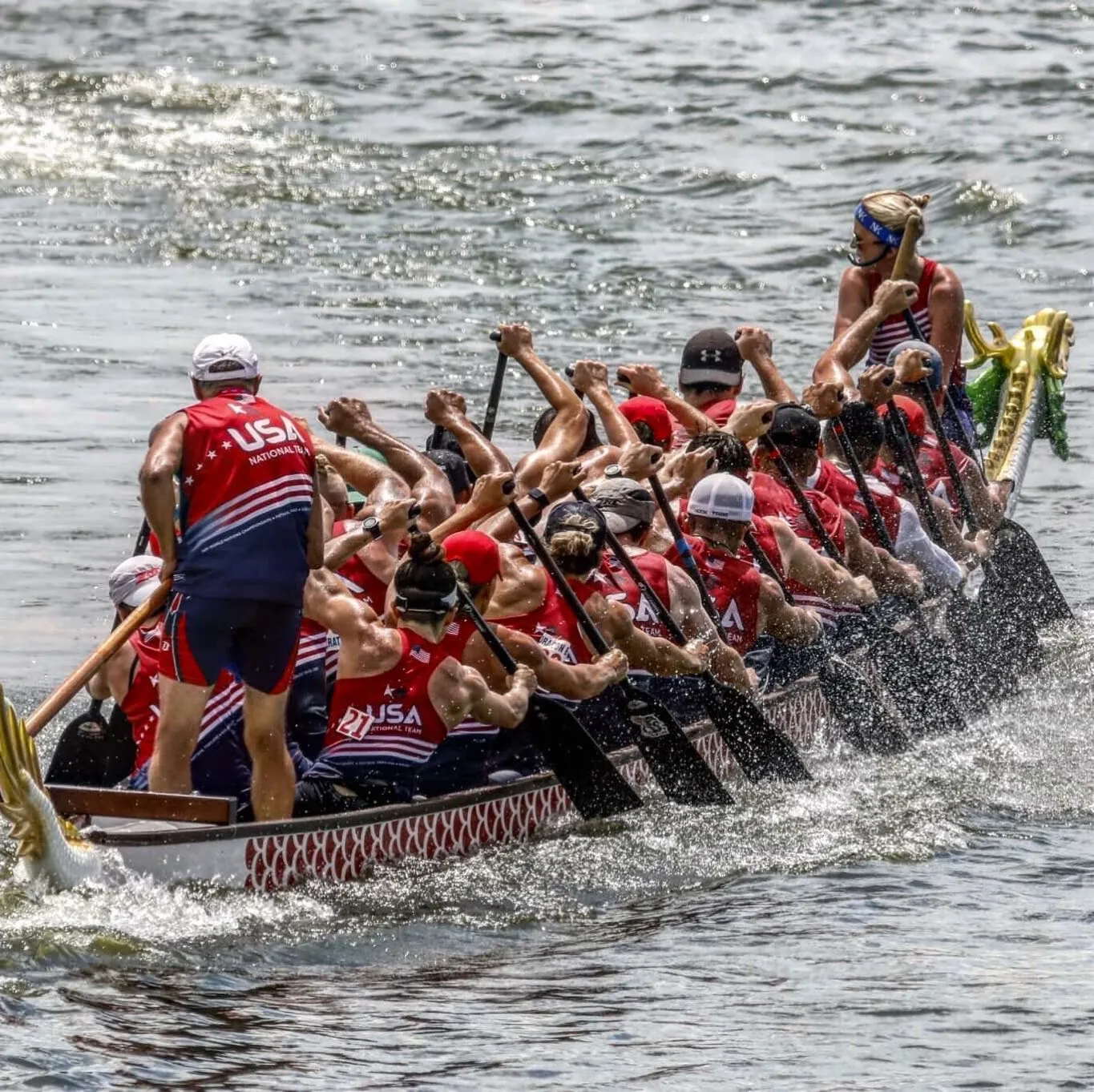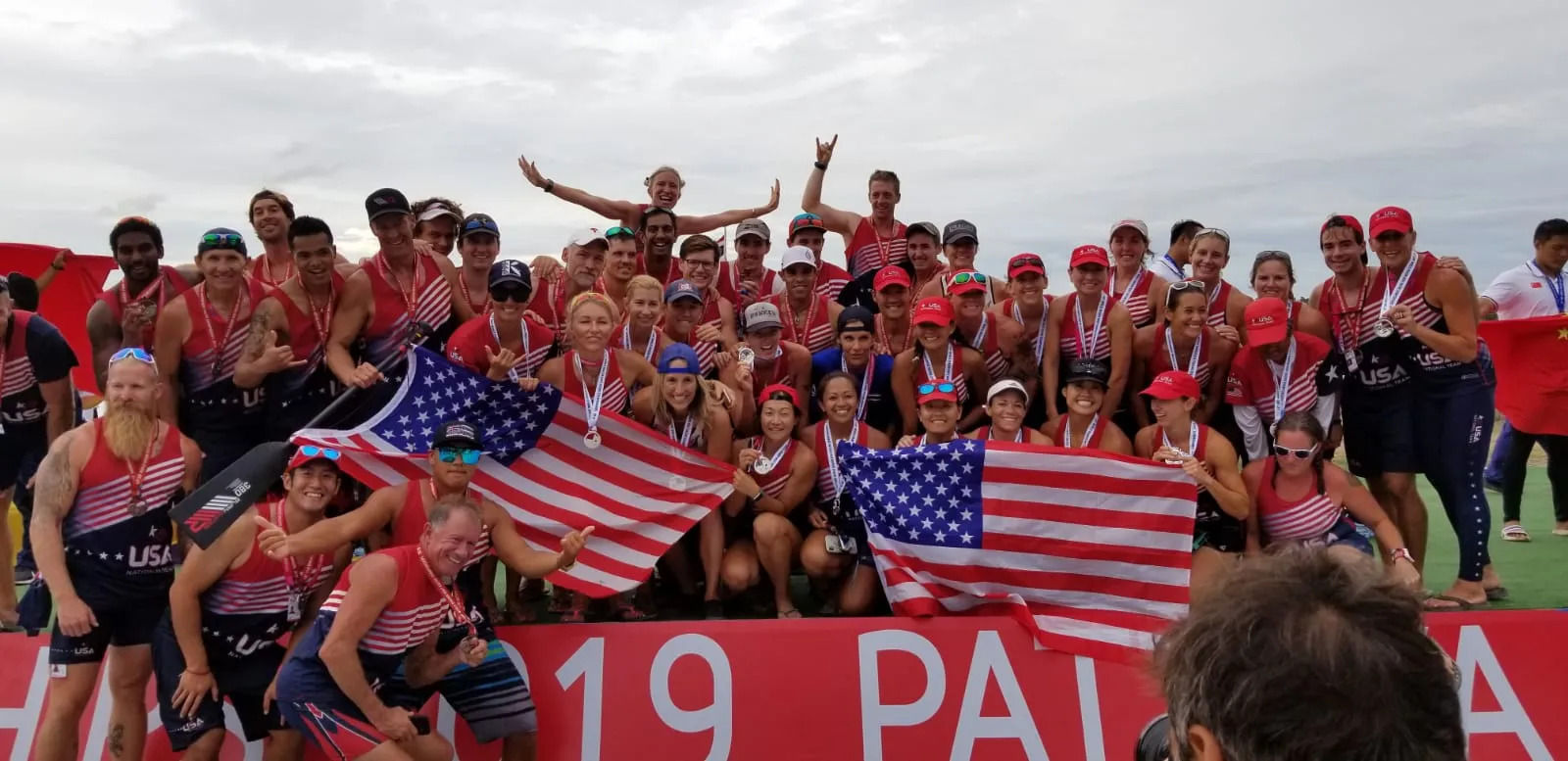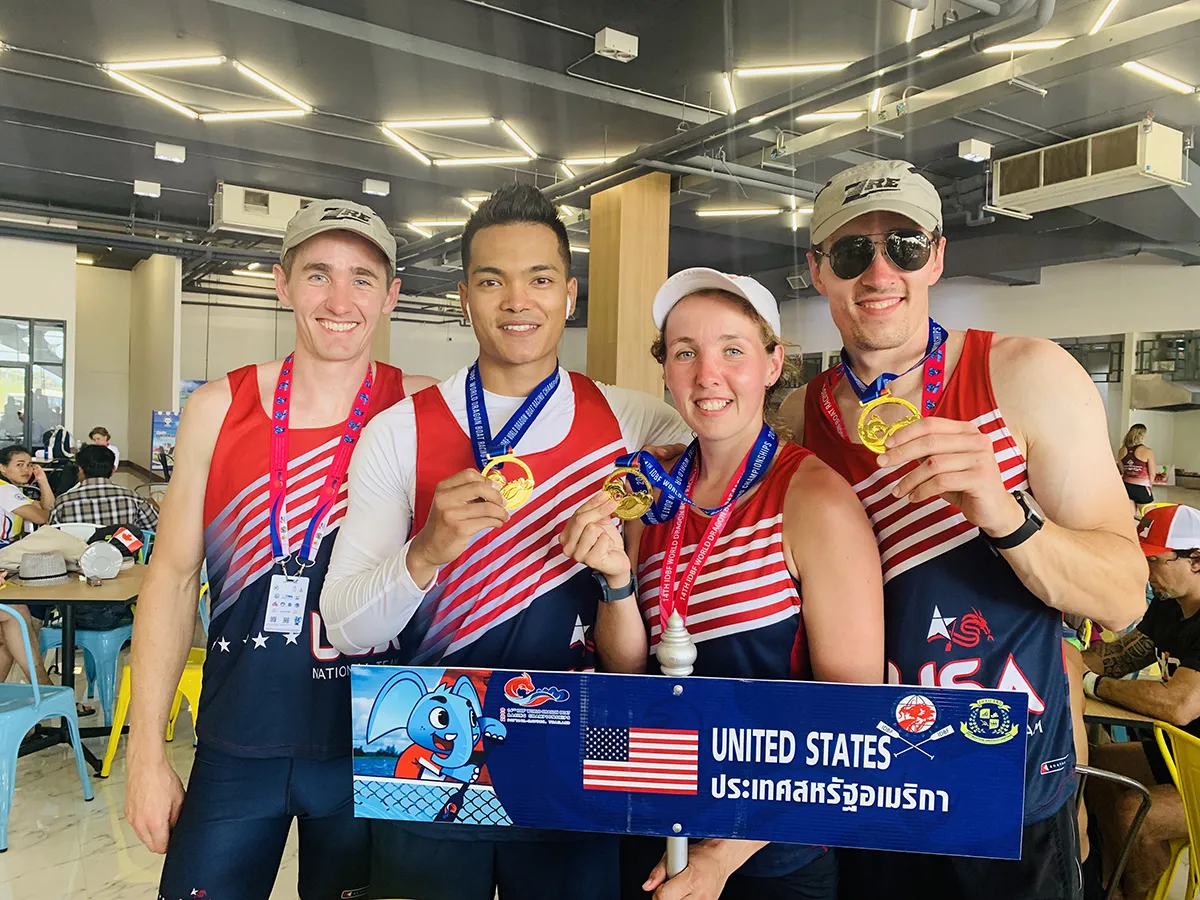Canoe racing is a solo sport, even when you race with a partner. You train on your own most of the time, and the hours-long events are like marathons that test personal strength and character. Racers must maintain their physical and mental reserves throughout these contests.
“If you fall behind in a canoe race,” Schlimmer pointed out, “you have time to catch up.”
Dragon boat racing holds an entirely different attraction. It’s why Schlimmer joined the Team U.S.A. dragon boat team. This past August, the team competed against 4,000 athletes from 30 countries at the International Dragon Boat Federation World Championships in Pattaya, Thailand, and took home several medals.
Dragon boat racing boasts a 2,500-year history. The races are rooted in Chinese festivals where the people prayed for rainfall and celebrated the summer rice planting. The athletes row in large boats that fit 18-20 people and have decorative Chinese dragon heads and tails on either end. A drummer keeps time for the rowers, while a steerer controls the direction of the boat's movement. While the history may or may not inform each dragon boater in 2019, it does impact how the teams train, warm up and compete.
Schlimmer pointed out how the aggressive nature of a team’s warm-up sessions differs from the more mellow pre-stretch sessions at canoe races.
“Dragon boaters execute very aggressive dances and facial expressions during our warm ups,” he said. “Chanting and movements get our heart rates up.” The experience, according to Schlimmer, unifies the team. Paddlers must perform as a unit and maintain perfect timing with the rest of the team.


